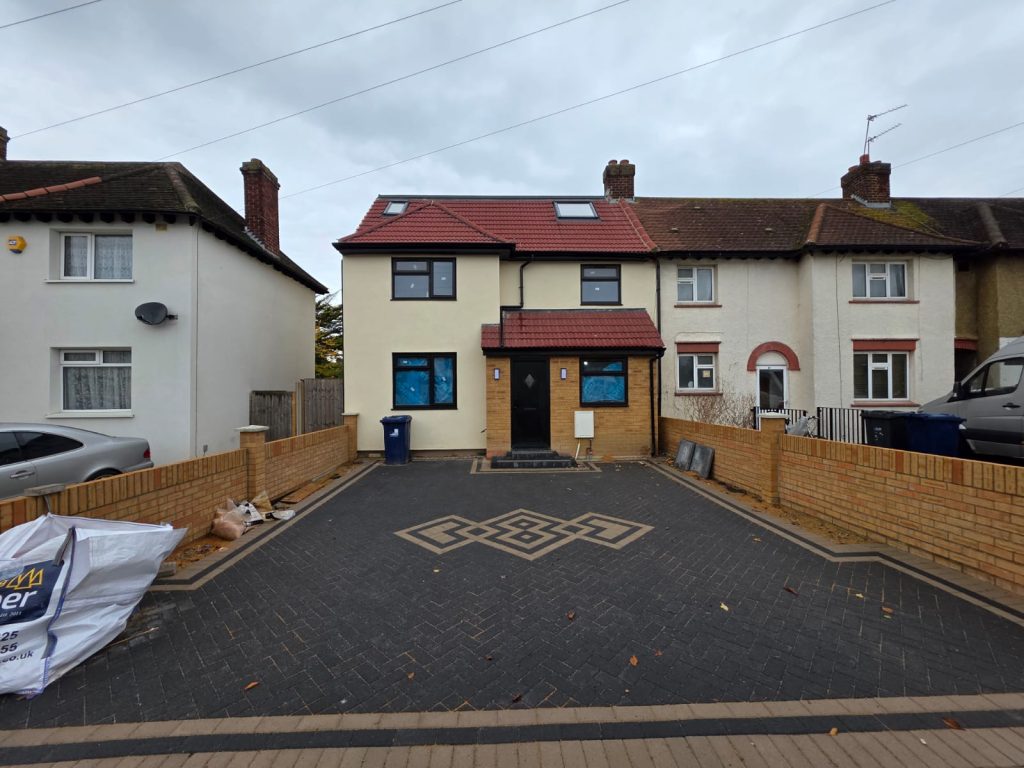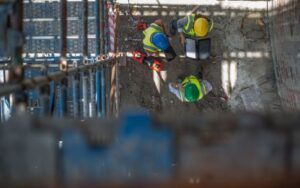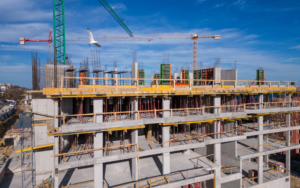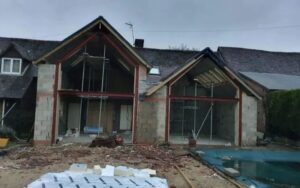Each time you are about to build a house, office, or other building, the foundation is one of the strongest parts. The foundation bears the entire building. If, in case, the foundation is poor or bad, then the building can perish horribly. In this blog post, we’re discussing why a proper foundation is important and how careful groundwork keeps the building secure and solid.
What Is Groundwork and Why Is It So Important?
Groundworks are the works that are carried out to prepare before building. They comprise foundation work, excavation, laying drainage pipes, and ground preparation. Why it’s important: Groundwork is necessary because it hardens and reinforces the foundation.
While the above-ground level of the building is important, so too is the below-ground level. A good foundation is what gives the building its strength and stability. It is also what gives the building wind and rain resistance and earthquake resistance.
Types of foundations
There are a couple of types of foundations. Based on the soil you’re building upon, the size of your structure, and your location, one of the following will be the one you’ll build:
Slab Foundation: A concrete slab poured over the soil. It’s most often utilized on small structures because it’s cheap and straightforward to build.
Crawl Space Foundation: A narrow opening between the ground and the building. Plumbing and electrical services can easily be accessed. It is found in places where the climate is moderate.
Basement Foundation: Here, ground is dug up to the ground level, and the walls are of concrete. It is used when the surface of the ground is low, as well as when the water table is not high.
Pier and Beam Foundation: It entails the use of concrete or steel piers on the ground level. Beams are then mounted on them to support the building. It is also commonly utilized wherever there is a presence of floodwater.
Disadvantages and Advantages of All Foundations
Having a good foundation for your project means a lot to make your building solid.
How Soil Affects the Foundation
The nature of the ground beneath the ground is of prime importance in building a foundation. Soils are differential in nature. They are weak or strong and will sustain a building accordingly.
Clay soil is expansive or compressive in wet weather. It will slope or crack the foundation.
Sandy soil will drain water, but will be weak to carry a heavy building.
Rocky ground is the strongest and best to employ on foundations.
The ground is also tested before constructing, so that it will be in a position to support the foundation. This kind of test would be carried out by the expert staff and put the ground in the right position.
How Quality Groundworks Benefits the Construction
Quality groundwork protects the foundation from being constructed in the right manner.
That’s how quality groundwork can benefit:
Prevents Settlement: Poor groundwork allows the foundation to settle or sink. It does both and creates cracks and is most destructive. Proper groundwork flattens the ground and tamps ahead of time before the foundation.
Prevents Water Exposure: Water is extremely toxic to the foundation. Without drainage, water causes cracking or shifting. Proper groundwork includes drainage systems to protect the foundation.
Prevents Cracks: Poor groundwork can result in cracking of the foundation, which may be transferred to the floors or walls of buildings. Good groundwork avoids all that.
Long-Lasting: Well-done foundation lasts for decades. Good groundwork guarantees that the foundation will endure long enough to counter weather fluctuations as well as age.
The Risks of Poor Groundwork
Others attempt to save money and become cost-cutting by not conducting groundwork. It will cause tremendous problems in the future. Some of the risks of poor groundwork are as follows:
Crack on Walls: Crack is observed on walls if the groundwork is not good, and they start peeling off.
Sloping Floors: Sloping floors are formed due to poor groundwork. It will make the building unsafe and uninhabitable.
Complete Collapse: Worst-case scenario, shoddy groundwork will lead to complete building collapse.
The foundation is the most critical part of a building. Taking shortcuts with the groundwork will lead to expensive and hazardous issues in the future. It is more sensible and cheaper to invest the money beforehand to ensure the foundation is solid and stable.
How Statim Build Ensures Strong Foundations
We understand in Statim Build that a good start is extremely important. That’s why we always use the best methods and materials to make sure every building starts well. Our team tests the ground carefully to build a strong foundation.
We are happy to build on solid foundations. What I’m referring to is the foundations that we build on are sound, secure, and safe. Your foundation will be built well, utilizing Statim Build. No more stress about your foundation.
Why You Should Hire Experts for Groundwork
Others will try to cut costs by having a go themselves or using volunteers. This will result in great problems down the road. Trained ground workers, such as Statim Build and their experts, will pay attention to every detail of what is needed to have your foundation solid and strong.
Ground workers professionals will ensure that:
The right material is used.
Soil tests are used to determine the solidity of the ground.
All the requirements are met.
It is completed within the specified time and cost.
An expert team can guide you to choose the most appropriate foundation for your building so that you will be able to get maximum value from your building.
Conclusion: Strong Foundations Are the Key to Every Successful Building
In general, the base is the most important part of a building. Proper groundwork maintains and supports the base, and hence, the entire building is safe. It could be a problem later when corners are taken by saving money by doing the groundwork, to save money. It is always better to spend money on quality groundwork initially so your building will last for a long time.
FAQs
-
Why is a solid base so important?
A strong foundation holds the whole building together. Or else, the building collapses, floors cracked or sloping.
-
How can I tell groundwork is being done well?
Any good company will test ground by sampling ground, hardening ground, and levelling ground. They’ll also install drainage to keep water from getting too close to the foundation.
-
Am I cutting costs on a cheaper foundation?
Sounds good, but the cheaper foundation is where you are most likely to be in trouble in the future. A solid foundation will hold up your building, and it is worth it to have the right one.
-
What is the most typical type of foundation?
The most typical foundation is a slab foundation. But the best foundation for your building is the soil-based, size, and weather one.
-
Will the poor soil damage the foundation?
Poor soil will cause the foundation to shift or crack. For this reason, preparatory work should be followed by soil tests.





